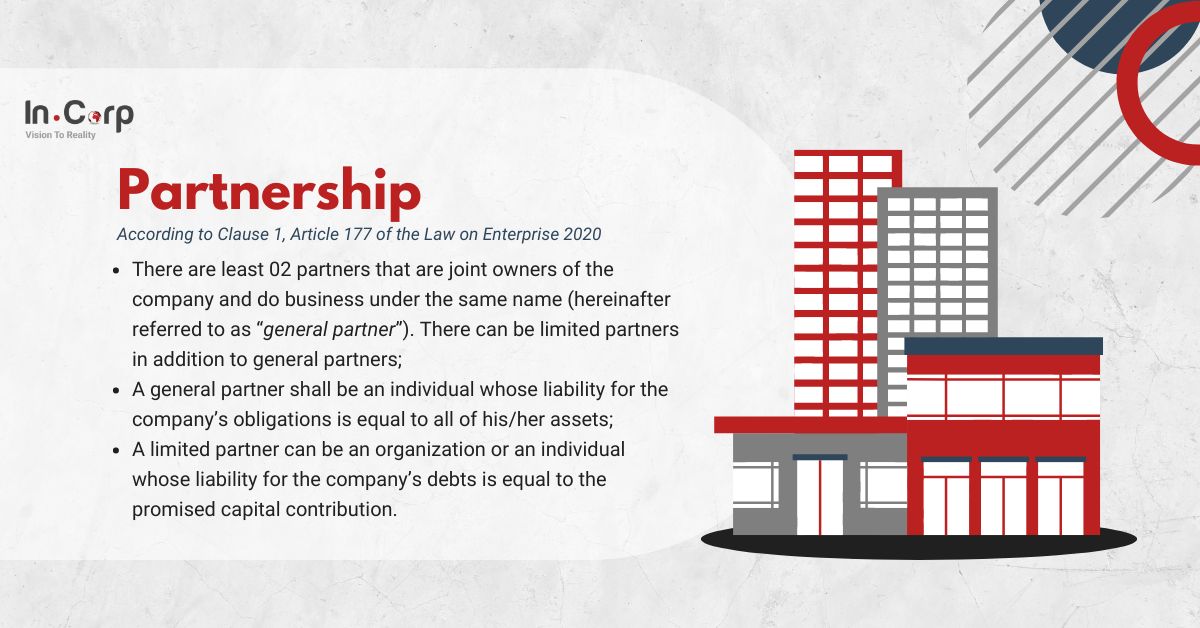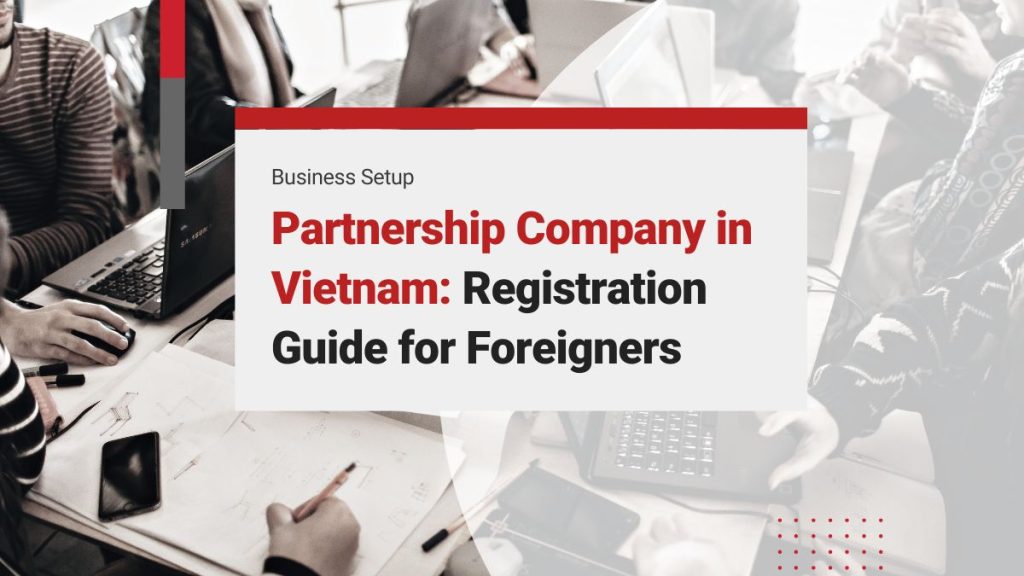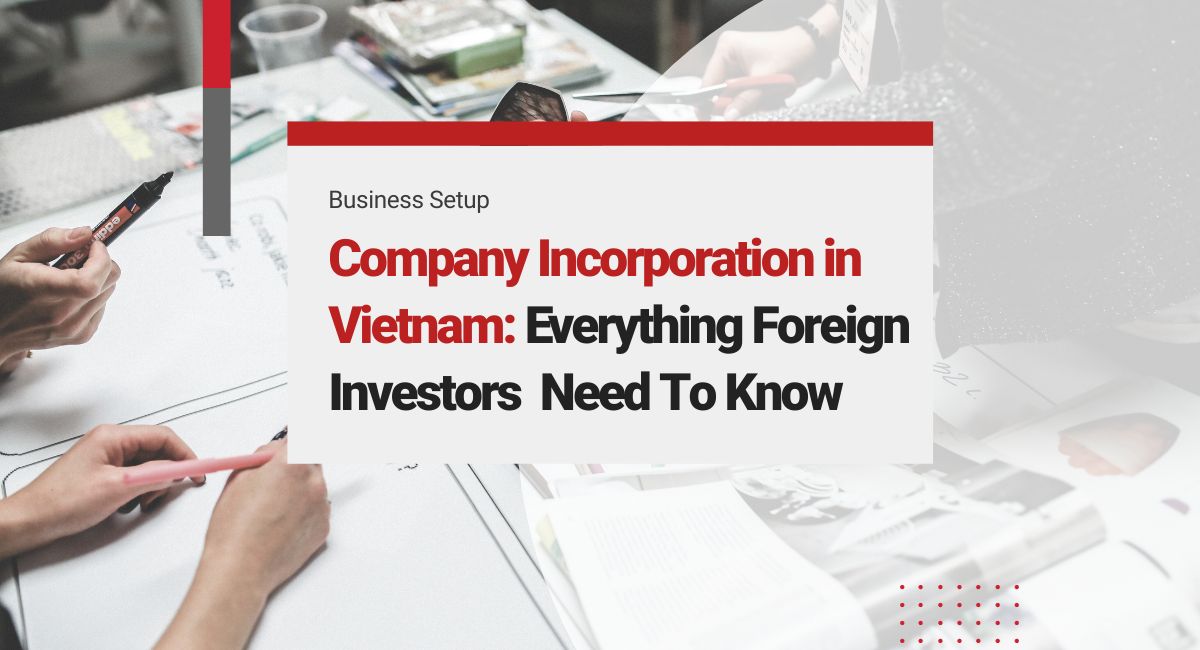In Vietnam, partnership companies offer a unique business structure where members contribute capital and share joint, unlimited liability for the company’s obligations. This model is favored for its straightforward establishment and management processes, coupled with high asset liability which fosters trust with clients and partners.
To support clients in navigating the registration process for establishing a partnership company in Vietnam, InCorp Vietnam provides this comprehensive guide, detailing the essential registration procedures and critical considerations for businesses.
Interested in a Partnership Company in Vietnam? Check out InCorp Vietnam’s Company Formation Services
Partnership Business Definition

A partnership in Vietnam, as defined by Clause 1, Article 177 of the Law on Enterprises 2020, is a type of enterprise where:
- There are at least two partners who are joint owners of the company, conducting business under the same name (referred to as “general partners“). Besides general partners, there can also be limited partners.
- A general partner must be an individual who bears unlimited liability for the company’s obligations with all of their assets.
- A limited partner can be either an organization or an individual, whose liability for the company’s debts is restricted to the amount of capital they have committed to contribute.
Partnerships, governed by the Law on Enterprises 2020, obtain legal status upon the issuance of their Business Registration Certificate.
Regarding the issuance of shares, Clause 3, Article 177 of the Law on Enterprises 2020 stipulates that partnerships are prohibited from issuing any form of securities. Clause 1, Article 4 of the Law on Securities 2019 further categorizes securities as shares, bonds, fund certificates, and other financial instruments. Hence, partnerships in Vietnam are not permitted to issue shares or any other securities.
Requirements for Registration of a Partnership in Vietnam
Forming a general or limited partnership in Vietnam requires meeting several specific criteria:
Document Requirements
- Partnership registration form
- Partnership charter: The foundational document of the partnership.
- List of partners: Including passport copies, identification card copies, or other personal certifications for each partner.
- Legal capital certification: Required for certain business lines.
- Practice certificates for general partners: Relevant to specific business lines.
Read Related: An Extensive Guide to Industry Capital & Deposit Requirements in Vietnam
Legal and Valid Identification Documents of Partners
- For Vietnamese citizens:
- Notarized copy of an identification card or passport for residents.
- For overseas Vietnamese nationals, a Vietnamese visa or foreign passport along with a certificate of Vietnamese nationality or origin is required.
- For foreigners:
- Notarized copy of a foreign passport and resident card for those residing in Vietnam.
- Legalized copy of a foreign passport for those living abroad.
Rules of Naming a Partnership
Partnerships in Vietnam must have a unique name that complies with Government Decree No. 01/2021/ND-CP. The name must not duplicate or confuse with existing enterprises registered in the National Database on Enterprise Registration nationwide.
How to Register a Partnership in Vietnam
Procedures for Establishing a Partnership Company
Direct Registration or via Postal Service:
- Submit application: The applicant submits one application to the Business Registration Office where the enterprise will be headquartered.
- Receiving: The Business Registration Office provides a receipt acknowledging the submission.
- Document processing:
- If the application is valid, the Business Registration Office issues the Enterprise Registration Certificate within three working days.
- If the application is invalid or the proposed business name does not meet regulations, the Business Registration Office notifies the applicant in writing to amend or supplement the application within three working days.
- Disclosure of business registration information: The publication request is made at the time of submitting the business registration application, including details of the Enterprise Registration Certificate and business lines.
Electronic Registration:
- Submit application: The applicant declares information, uploads electronic documents, signs, authenticates the application via the electronic network, and pays the registration fee on the national information portal for business registration.
- Receiving: The applicant receives a receipt via the electronic network upon submission.
- Document processing:
- If the application meets the requirements, the Business Registration Office issues the business registration certificate and notifies the applicant.
- If the application does not meet the requirements, the Business Registration Office sends a notice via the electronic network requesting amendments.
- Disclosure of business registration information: As with direct registration, this includes the Enterprise Registration Certificate details and business lines.
Where Should Partnership Dossiers Be Submitted?
Currently, individuals or organizations can submit partnership registration applications directly or by post to the business registration division in the locality where the enterprise will be headquartered. Alternatively, registration can be done electronically through the National Business Registration Portal. Specifically:
- Direct registration or via postal service: Submit to the local business registration division or via postal service.
- Electronic submission: Information is declared, e-documents are uploaded, and the dossier is authenticated and submitted via the electronic network. Fees are paid according to the process outlined on the National Business Registration Portal.
Fees and Charges for Registering a Partnership Company in Vietnam
According to Circular No. 47/2019/TT-BTC on business registration fees, the following amounts must be paid:
Fee Payment Time
Fees and charges are paid upon submission of the business registration application.
Forms of Payment
Two methods are available:
- Direct payment to the Business Registration Office.
- Transfer to the Business Registration Office account or use of electronic payment services.
Reimbursement
Business registration fees are non-refundable if the registration is not granted. However, if registration is not granted, the fee for publishing business registration content is refundable.
Charges
- Fee for publishing business registration information: VND 100,000.
- Business registration fee: VND 50,000 (exempted for online registration).
Obligations and Restrictions Related to Partnership Companies in Vietnam
In a partnership, limited partners’ financial liability is confined to their capital contribution, while general partners’ liability extends to their entire assets for the partnership’s obligations and business liabilities. Consequently, in the event of a partnership failure, general partners must use personal assets, including property, land, cars, cash, and investments, to settle the partnership’s debts and liabilities.
There are specific restrictions on general partners:
- They cannot own private enterprises or be partners in another partnership.
- They are prohibited from conducting business activities for personal benefit or the benefit of other partners.
- A general partner cannot transfer their capital contribution to others without the consent of the remaining partners.
However, partnerships in Vietnam face no restrictions on the number of business locations. They are allowed to establish branch offices or representative offices, provided these are registered legally.
Conclusion
Forming a partnership company in Vietnam presents a viable option for both local and foreign investors due to its straightforward establishment process and the high level of trust it engenders among clients and partners. By understanding the definitions, requirements, registration procedures, fees, and obligations associated with partnerships, businesses can navigate the Vietnamese legal landscape more effectively. Whether choosing to establish a general or limited partnership, adhering to the legal frameworks and procedural guidelines will ensure a smooth registration process and operational success in Vietnam’s dynamic market.

clients worldwide

professional staff

incorporated entities in 10 years

compliance transactions yearly






